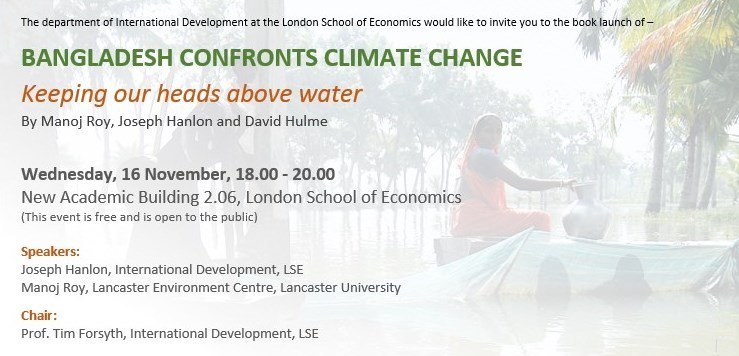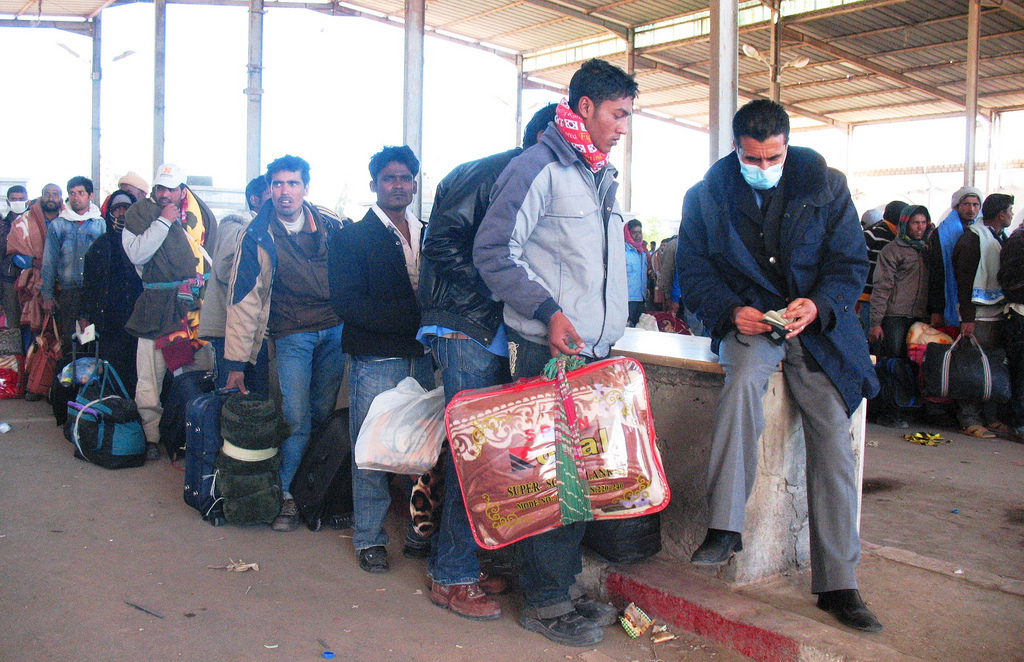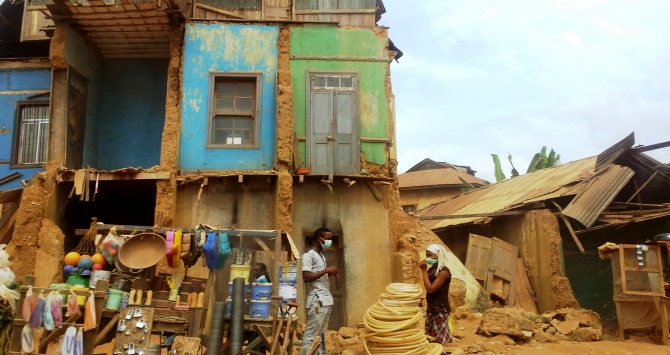About the event:
Joseph Hanlon and Manoj Roy will present their new book which tells the story of a country that refuses to be a helpless victim next Wednesday at the London School of Economics.
Climate change will make cyclones and floods more devastating; sea level is already rising. Bangladeshi officials, scientists and communities know what is coming and are already adapting, based on their experience of living with a very difficult environment. Cyclone shelters and warning systems now save tens of thousands of lives. Locally developed rice varieties mean Bangladesh is a rice exporter; newer varieties adapt to climate change. And coastal communities have found how to raise the land to match sea level rise.
Bangladeshis will keep their heads above water – if industrialised countries curb greenhouse gas emissions. Bangladeshi negotiators have been fighting for more than a decade to keep global warming below 1.5ºC, and to demand that industrialised countries pay for damage already done. They will be playing an important role in the annual climate change negotiations (COP 22) 7-18 November.
About the speakers:
Both an academic and a journalist, Joseph Hanlon moved from a PhD in physics at Tufts University to the staff of New Scientist to being BBC and Guardian stringer in Mozambique (1980-84). More detailed research and book writing followed as he moved into development studies. Other projects included serving as coordinator of the Commonwealth Independent Expert Study on Sanctions Against Apartheid South Africa (1989-90) and Policy Advisor for the Jubilee 2000 campaign to cancel developing country debt (1998-2000).
Manoj Roy’s research interests include: urban poverty analysis; ecosystem services/disservices-urban poverty linkages; climate change adaptation; and human settlement design and planning; and informal land and rental markets. In the pursuit of policy relevant findings, he applys novel interdisciplinary methods combining technical analysis (e.g. architectural and planning, spatial analysis and modelling) with a social (e.g. livelihoods, wellbeing) and political (governance, institutional) analysis. His research sponsors include: Ecosystem Services for Poverty Alleviation (ESPA) – a NERC-ESRC-DFID joint programme; ESRC-DFID Joint Fund for Poverty Alleviation research programmes; and EU Framework Programme 7.
Bangladesh Confronts Climate Change: Keeping our heads above water
Wednesday 16 November, 6-8pm
Venue: NAB 2.06
Speaker: Joseph Hanlon and Manoj Roy
Chair: Prof. Tim Forsyth
The event is open to the public and everyone is welcome. Refreshments will be available and there will also be the opportunity to purchase the book at the end of the event.
Here are some recent articles from Joe Hanlon on Bangladesh and climate change:
Climate finance dispute prompts Bangladesh to return £13m of UK aid – The Guardian
It’s too early to talk about climate change refugees in Bangladesh – The Conversation
Climate change: meeting sea level side by raising the land – Oxfam, From Poverty to Power
Bangladeshis have become activists in the fight against climate change – LSE, South Asia Centre
We look forward to seeing you there!






